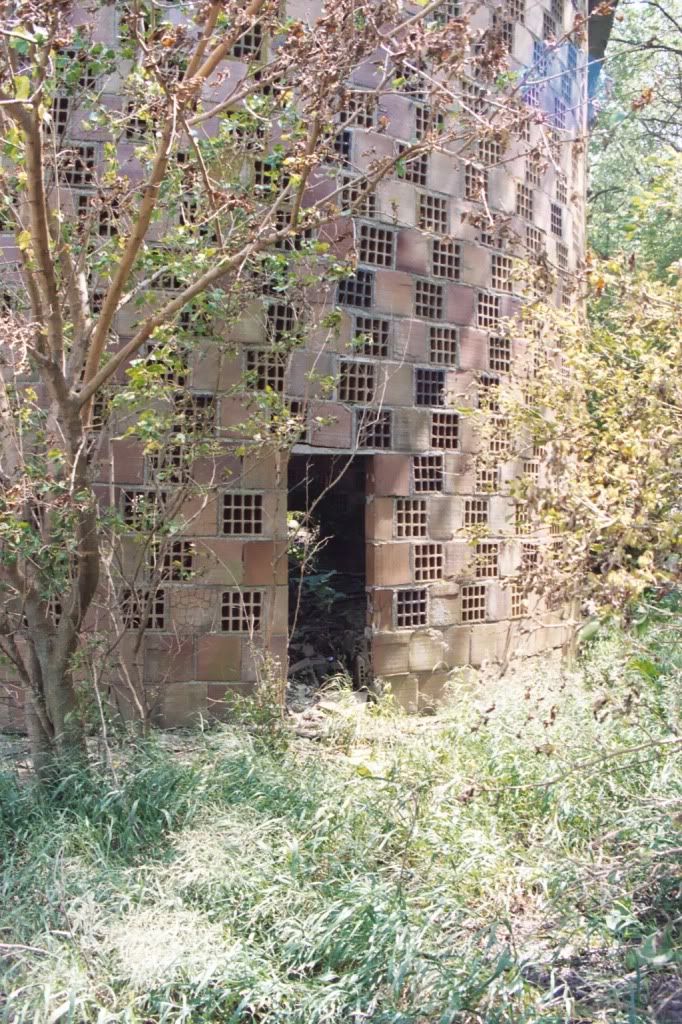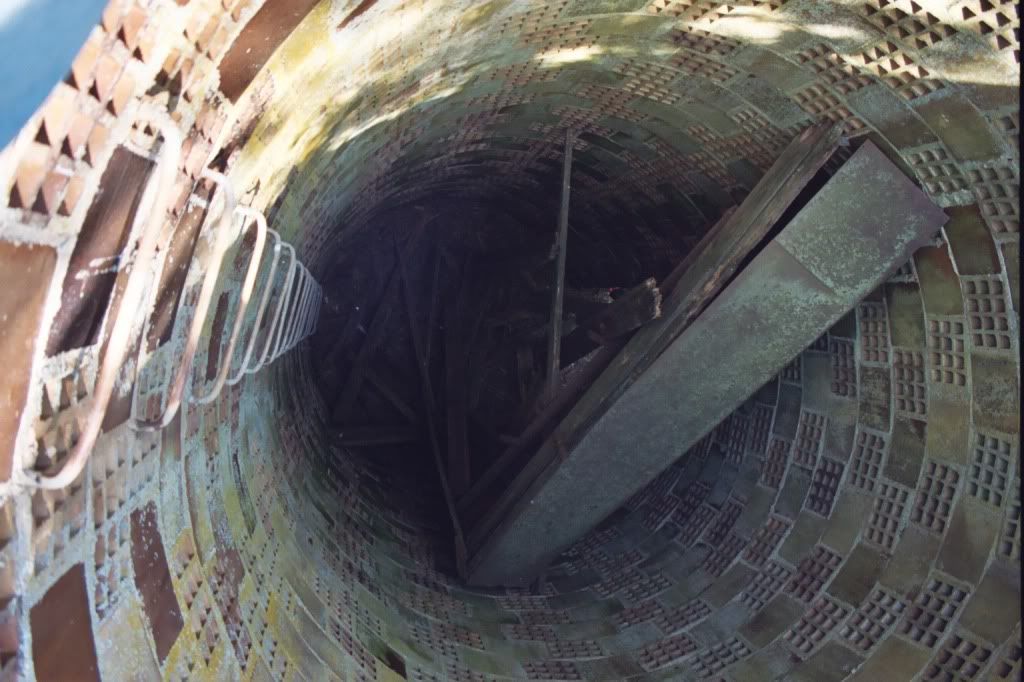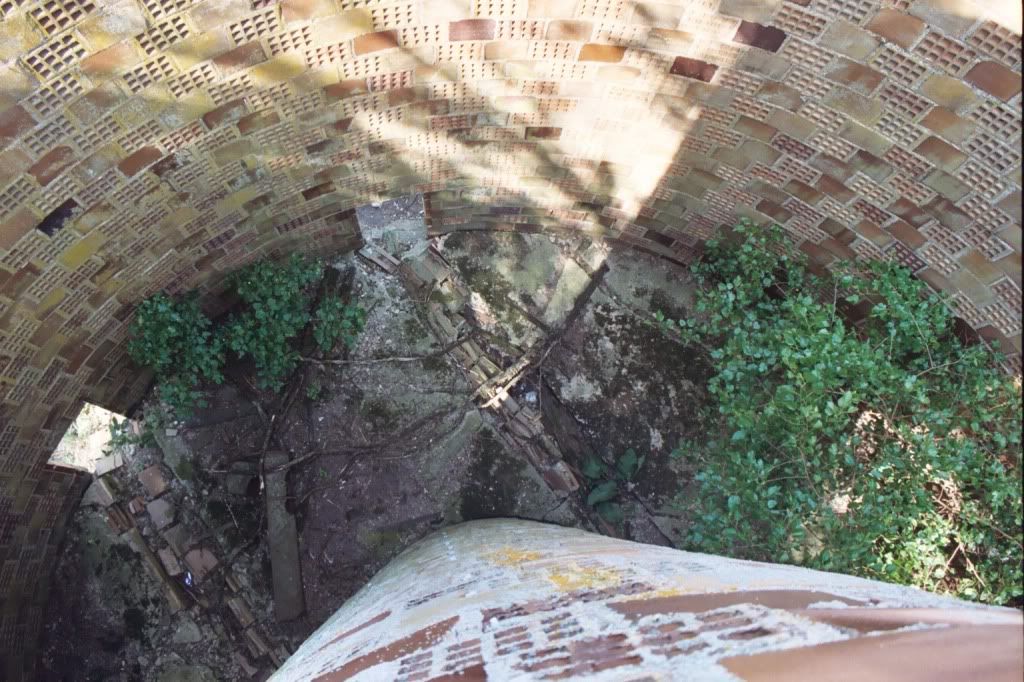I recently read a book, a big book. Actually it wasn't very big, it was a pocket book but it had 1069 pages at about point six font. (Even the big hard back is that long). It took me about a month to read, mainly as I drove to and from work. "Gasp!" The woman who wrote it is absolutely brilliant, if not flawed personally, in just a couple of points.
It was published in '57 and I was stunned at how appropriate it was for Today. In light of recent conversations that have been going around on the Bloggosphere, I thought that I would post an excerpt for public perusal.
Let me set it up and I shall try to be brief as there is 500 pages in front of the dialogue that is to follow.
The book is about the conflict between social Communism and capitalism and man's responsibility in the fight. Laws have been passed to essentially take what Big Business has earned through hard work and industry and "give" it to the "public need." A law has been passed that bans any business owner from owning a venture in more than one field of industry. If he owns more than one type of business he is forced to sell them off at a "fair rate"(give it away) until he only has one. Instead of accepting this, many "shakers and movers" have chosen to quit and simply disappear. The orchestrators behind the government have met and have devised a plan to "save" the country and stop any more people from leaving, a brilliant plan that further strips the citizens of their rights and ensures the non-producers financial safety. These men are arguing over the points of the legislation and the final straw was whether or not the people would actually allow it to happen, and this is what stood out:
"Still, I'm worried. The intellectuals are our friends. We don't want to lose them. They can make an awful lot of trouble."
"They won't" said Fred Kinnan. "Your kind of intellectuals are the first to scream when it's safe--and the first to shut their traps at the first sign of danger. They spend years spitting at the man who feeds them--and they lick the hand of the man who slaps their drooling faces. Didn't they deliver every country of Europe, one after another, to committees of goons, just like this one here? Didn't they scream their heads off to shut out ever burglar alarm and to break every padlock open for the goons? Have you heard a peep out of them since? Didn't they scream that they were friends of labor? Do you hear them raising their voices about the chain gangs, the slave camps, the fourteen-hour workday and the mortality from scurvy in the People's State of Europe? No, but you do hear them telling the whip-beaten wretches that starvation is prosperity, that slavery is freedom, that torture chambers are brother-love and that if the wretches don't understand it, then it's their own fault that they suffer, and it's the mangled corpses in the jail cellars who're to blame for all their troubles, not the benevolent leaders! Intellectuals? You might have to worry about another breed of men, but not about the modern intellectuals: they'll swallow anything. I don't feel so safe about the lousiest wharf rat in the longshoremen's union: he's liable to remember suddenly that he is a man--and then I won't be able to keep him in line. But the intellectuals? That's the one thing they've forgotten long ago. I guess it's the one thing that all their education was aimed to make them forget. Do anything you please to the intellectuals. They'll take it."
Saturday, July 28, 2007
Wednesday, July 11, 2007
Abandoned
I absolutely love derelicts. I think that I love them so much because of how irritated and frustrated it makes me feel when I look at one.
I see them and I shake my head in disgust. But not because of what the structure has become, but because of what it was allowed to become
As a builder I have an understanding of how much effort went into the thing: the money, the investment of every man's time, from the owner to the lowest laborer, the emotional investment that was made when blood was poured out in sweat and toil. The sleepless nights of anxiety and excitement. And then to see that which was so ardently fought for, left, rotting, because it holds no value for the new owner.
I am not a socialist. I don't believe that one mans goods should be turned over to another just for the sake of "need." But when men are so short sighted as to refuse to find an equitable return on the investment that was inherited or unintendedly purchased, I shake my head in disbelief. Wouldn't it be better if someone else had bought it?
But then as I write, I realise that perhaps I am not being completely just to those who posses derelicts. Perhaps they do value such structures, but their system of worth is not monetary, but rather emotional. Perhaps they love that structure so much that they can not bear to part with it.
I love to drive. I hate taking the same route to a familiar destination. It makes me feel like a rat, caught in a drab white maze. When I was coming home from my visit to the windmills one day I drove past a derelict out in a growing corn field, and I remembered that I had seen it before and I decided that I was going to have come back and shoot it with my recent some-what-past-time. Needless to say my imagination took some trips until I was able to return and actually go up to the structure.
I see them and I shake my head in disgust. But not because of what the structure has become, but because of what it was allowed to become
As a builder I have an understanding of how much effort went into the thing: the money, the investment of every man's time, from the owner to the lowest laborer, the emotional investment that was made when blood was poured out in sweat and toil. The sleepless nights of anxiety and excitement. And then to see that which was so ardently fought for, left, rotting, because it holds no value for the new owner.
I am not a socialist. I don't believe that one mans goods should be turned over to another just for the sake of "need." But when men are so short sighted as to refuse to find an equitable return on the investment that was inherited or unintendedly purchased, I shake my head in disbelief. Wouldn't it be better if someone else had bought it?
But then as I write, I realise that perhaps I am not being completely just to those who posses derelicts. Perhaps they do value such structures, but their system of worth is not monetary, but rather emotional. Perhaps they love that structure so much that they can not bear to part with it.
I love to drive. I hate taking the same route to a familiar destination. It makes me feel like a rat, caught in a drab white maze. When I was coming home from my visit to the windmills one day I drove past a derelict out in a growing corn field, and I remembered that I had seen it before and I decided that I was going to have come back and shoot it with my recent some-what-past-time. Needless to say my imagination took some trips until I was able to return and actually go up to the structure.

Doesn't it look like some medieval Middle Eastern tower?

What looked like mosaic tile turned out to be honeycomb block instead

And in the side, a small door stood

And upon entering I discovered what remained of a once very cool storage bin
 And knowing me, upon finding hand holds, I didn't hesitate in climbing up. It was awesome to see the elevator collapsed, as if some giant whose very existence was his work had finally succumbed to the ravages of time and all that was left were his bones
And knowing me, upon finding hand holds, I didn't hesitate in climbing up. It was awesome to see the elevator collapsed, as if some giant whose very existence was his work had finally succumbed to the ravages of time and all that was left were his bones
The desolate courtyard

And then there was this: see the branch growing THROUGH the other branch?
Subscribe to:
Posts (Atom)



